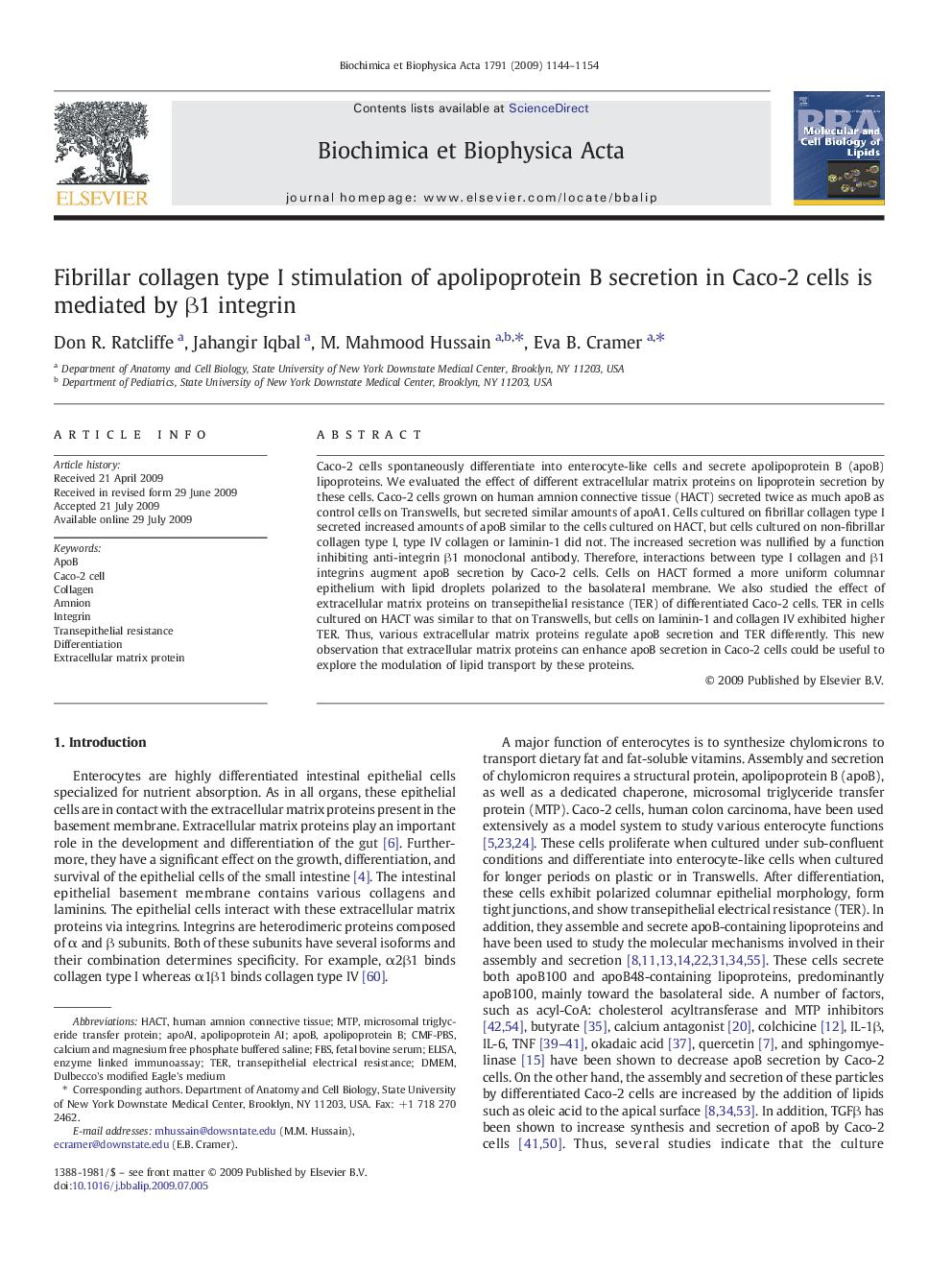| Article ID | Journal | Published Year | Pages | File Type |
|---|---|---|---|---|
| 1949785 | Biochimica et Biophysica Acta (BBA) - Molecular and Cell Biology of Lipids | 2009 | 11 Pages |
Caco-2 cells spontaneously differentiate into enterocyte-like cells and secrete apolipoprotein B (apoB) lipoproteins. We evaluated the effect of different extracellular matrix proteins on lipoprotein secretion by these cells. Caco-2 cells grown on human amnion connective tissue (HACT) secreted twice as much apoB as control cells on Transwells, but secreted similar amounts of apoA1. Cells cultured on fibrillar collagen type I secreted increased amounts of apoB similar to the cells cultured on HACT, but cells cultured on non-fibrillar collagen type I, type IV collagen or laminin-1 did not. The increased secretion was nullified by a function inhibiting anti-integrin β1 monoclonal antibody. Therefore, interactions between type I collagen and β1 integrins augment apoB secretion by Caco-2 cells. Cells on HACT formed a more uniform columnar epithelium with lipid droplets polarized to the basolateral membrane. We also studied the effect of extracellular matrix proteins on transepithelial resistance (TER) of differentiated Caco-2 cells. TER in cells cultured on HACT was similar to that on Transwells, but cells on laminin-1 and collagen IV exhibited higher TER. Thus, various extracellular matrix proteins regulate apoB secretion and TER differently. This new observation that extracellular matrix proteins can enhance apoB secretion in Caco-2 cells could be useful to explore the modulation of lipid transport by these proteins.
